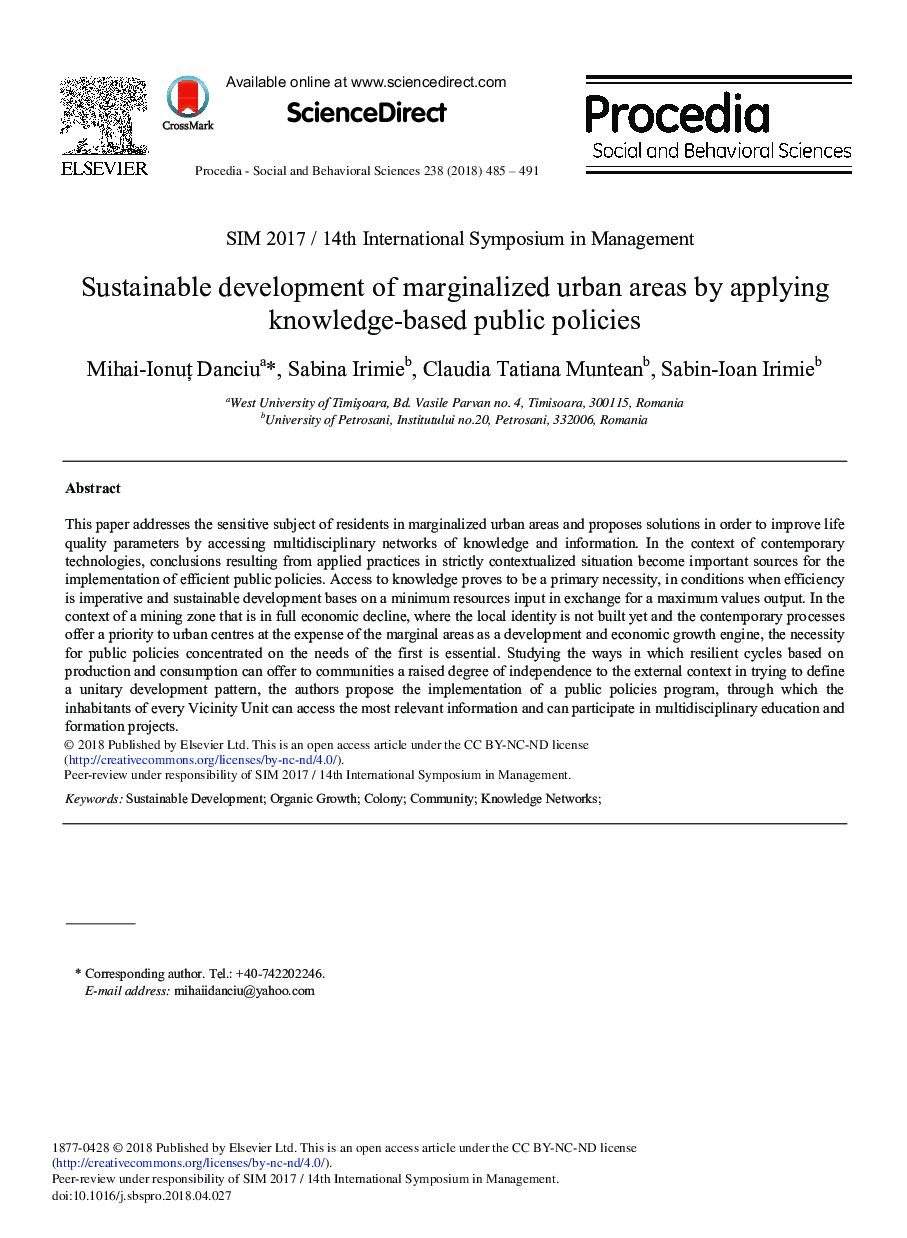| Article ID | Journal | Published Year | Pages | File Type |
|---|---|---|---|---|
| 7535451 | Procedia - Social and Behavioral Sciences | 2018 | 7 Pages |
Abstract
This paper addresses the sensitive subject of residents in marginalized urban areas and proposes solutions in order to improve life quality parameters by accessing multidisciplinary networks of knowledge and information. In the context of contemporary technologies, conclusions resulting from applied practices in strictly contextualized situation become important sources for the implementation of efficient public policies. Access to knowledge proves to be a primary necessity, in conditions when efficiency is imperative and sustainable development bases on a minimum resources input in exchange for a maximum values output. In the context of a mining zone that is in full economic decline, where the local identity is not built yet and the contemporary processes offer a priority to urban centres at the expense of the marginal areas as a development and economic growth engine, the necessity for public policies concentrated on the needs of the first is essential. Studying the ways in which resilient cycles based on production and consumption can offer to communities a raised degree of independence to the external context in trying to define a unitary development pattern, the authors propose the implementation of a public policies program, through which the inhabitants of every Vicinity Unit can access the most relevant information and can participate in multidisciplinary education and formation projects.
Related Topics
Social Sciences and Humanities
Arts and Humanities
Arts and Humanities (General)
Authors
Mihai-Ionuţ Danciu, Sabina Irimie, Claudia Tatiana Muntean, Sabin-Ioan Irimie,
